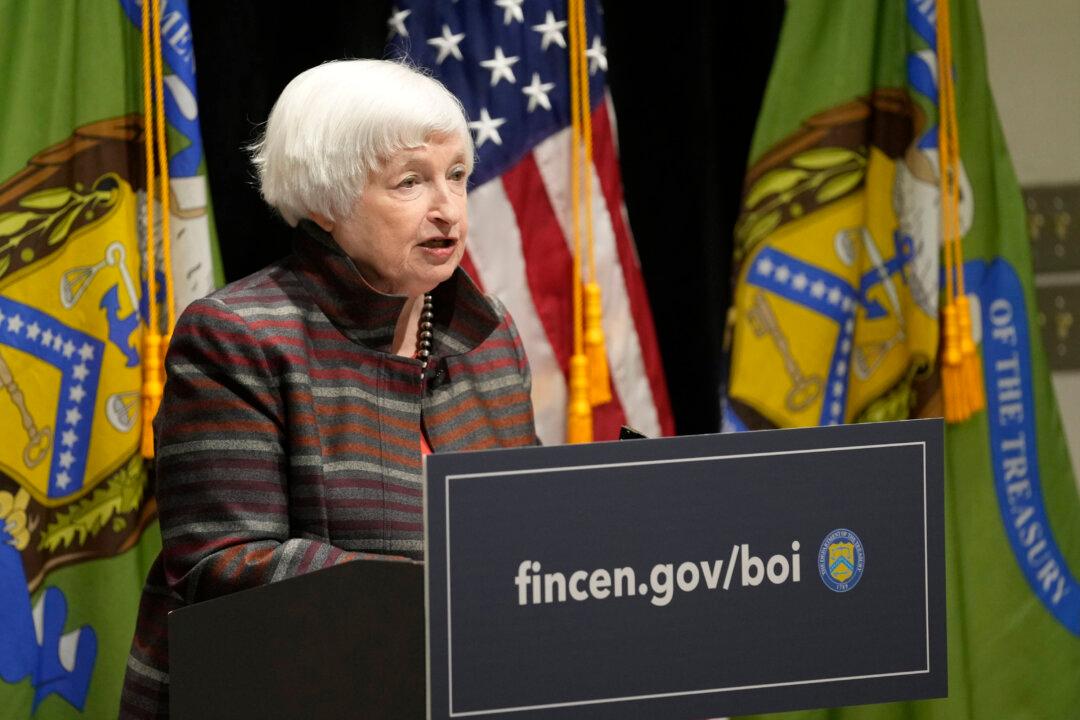Outgoing Treasury Secretary Janet Yellen conceded that COVID-19 stimulus packages could have contributed somewhat to persistent U.S. inflation.
The COVID-19 fiscal stimulus packages may have contributed “little bit to the inflation” but said that the main driving force was supply chain issues, she told CNBC on Wednesday morning.





